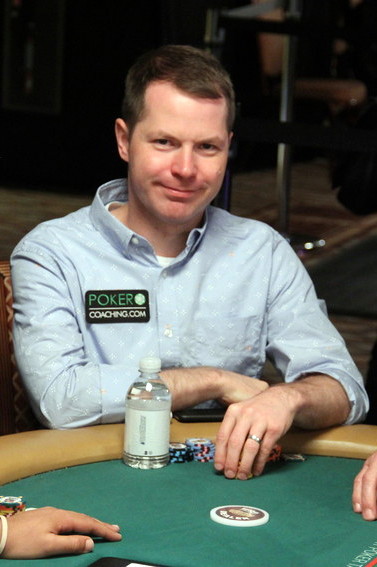






Stop Continuation Betting Every Single Time!by Jonathan Little | Published: Dec 27, 2023 |
|
|

Jonathan Little
One of the most frequent mistakes many poker players make is that they continuation bet the flop every single time.
In the past, many players would fold to continuation bets far too often, making frequent continuation bets quite profitable. That is not the case in 2023 though!
While this play may still work against the most unobservant, unstudied players, it is certain to fail against competent ones.
Many players think that the remedy to this overly-aggressive leak is to only bet with their strong hands, but that is also a mistake. Instead, on boards that should connect well with your opponent’s range, you should usually continuation bet with your best made hands as well as your draws (both good ones and bad ones). This is especially true on draw-heavy boards that should not favor either player’s range.
Suppose you raise from middle position to $15 out of your $500 stack in a $2-$5 cash game and only the player on the button calls. The flop comes Q J
J 7
7 .
.
This coordinated flop is highly likely to have connected with the caller on the button. If he has two high cards or two middle cards, he has at least a pair or straight draw. The only time this board should miss him is when he has a low pocket pair or A-x suited (not diamonds) and even then, he will likely check behind with those hands, allowing you to bluff those out on the turn or river.
So, instead of betting with your entire range, you should only bet with your best made hands, such as your best top pairs and stronger made hands, and draws, perhaps as weak as gutshot straight draws. This will make it difficult for your opponent to know if you are value betting with a strong hand or semi-bluffing with a draw.
You should check with some of your top pairs, middle pairs, and junk. This will make it difficult for your opponent to know if he should try bluffing because you could easily have a top or middle pair (that you do not plan to fold). Playing in this manner will have you betting somewhat infrequently for a large amount, perhaps 80% of the size of the pot.
While continuation betting using this strategy is a strong play that is somewhat close to the game theory optimal strategy, there are still times you should continuation bet more often, perhaps 100% of the time. The main time you should bet every time is when you should have a substantial range advantage over your opponent.
This typically occurs when you raise from early position and the big blind calls on high card flops, such as A-K-Q, and on uncoordinated flops, such as A-7-3 and Q-Q-3. In these spots, you should bet every time, betting larger as you have more effective nut hands in your range.
So, on coordinated boards that connect well with your opponent, bet infrequently but for a large amount, and on uncoordinated boards, bet frequently.
While playing optimally is not quite as simple as following this rule, it is an excellent starting point. Good luck in your games!
If you want more resources to help you improve your game, I put together a course called The 25 Biggest Leaks and How to Fix Them. This course is completely free inside Card Player Poker School!
When you join the Card Player Poker School (it’s free to join), you’ll also get:
 Jonathan Little is a two-time WPT champion with more than $7 million in live tournament earnings, best-selling author of 15 educational poker books, and 2019 GPI Poker Personality of the Year. If you want to increase your poker skills and learn to crush the games, check out his training site at PokerCoaching.com/cardplayer.
Jonathan Little is a two-time WPT champion with more than $7 million in live tournament earnings, best-selling author of 15 educational poker books, and 2019 GPI Poker Personality of the Year. If you want to increase your poker skills and learn to crush the games, check out his training site at PokerCoaching.com/cardplayer.
Features
Tournaments
Strategy